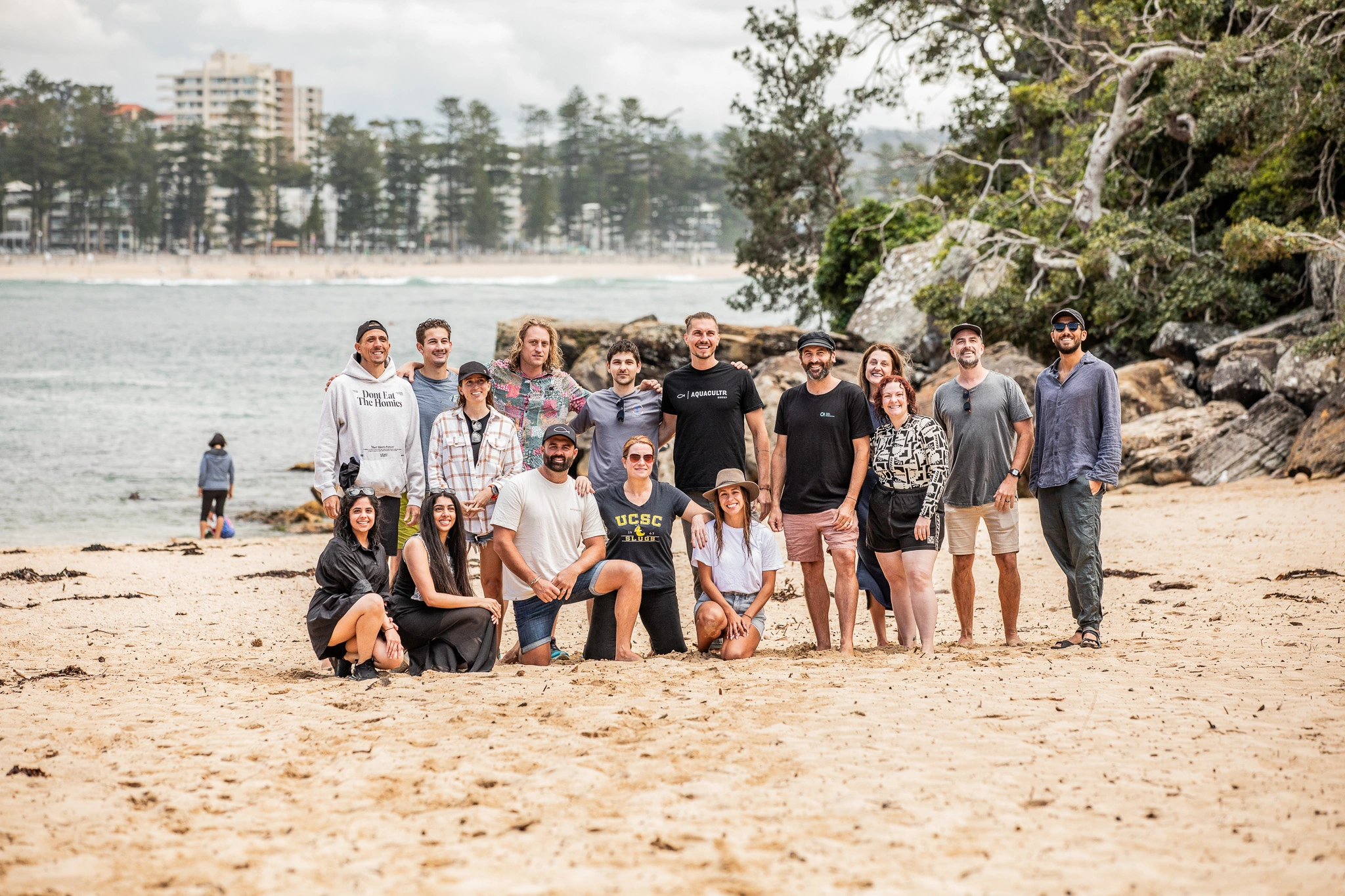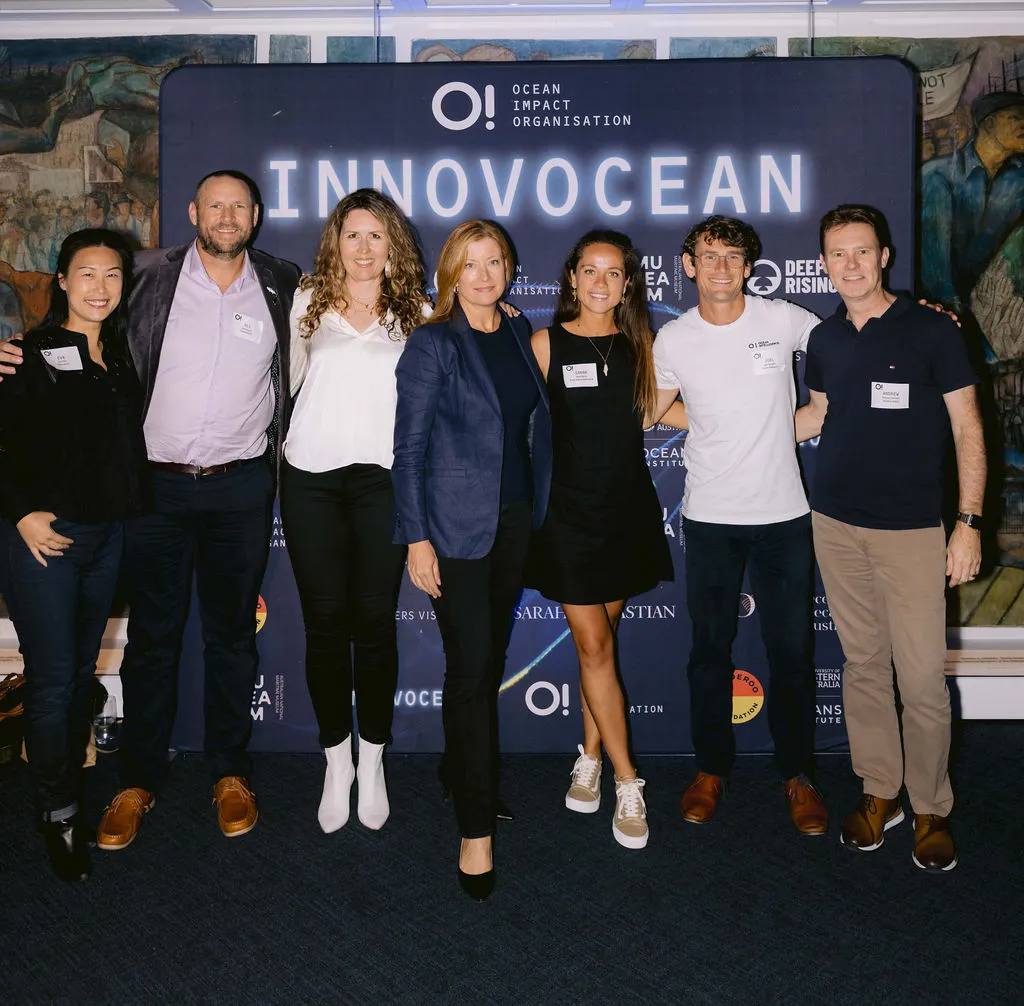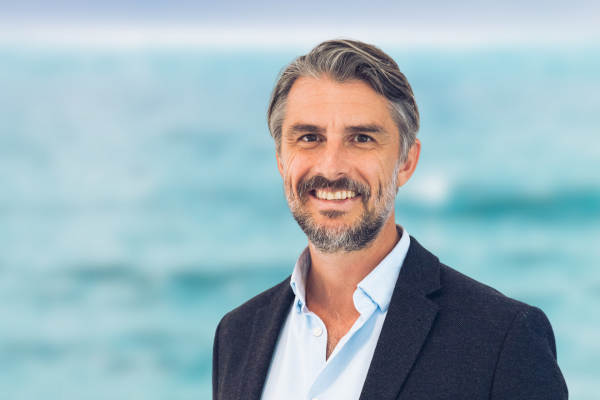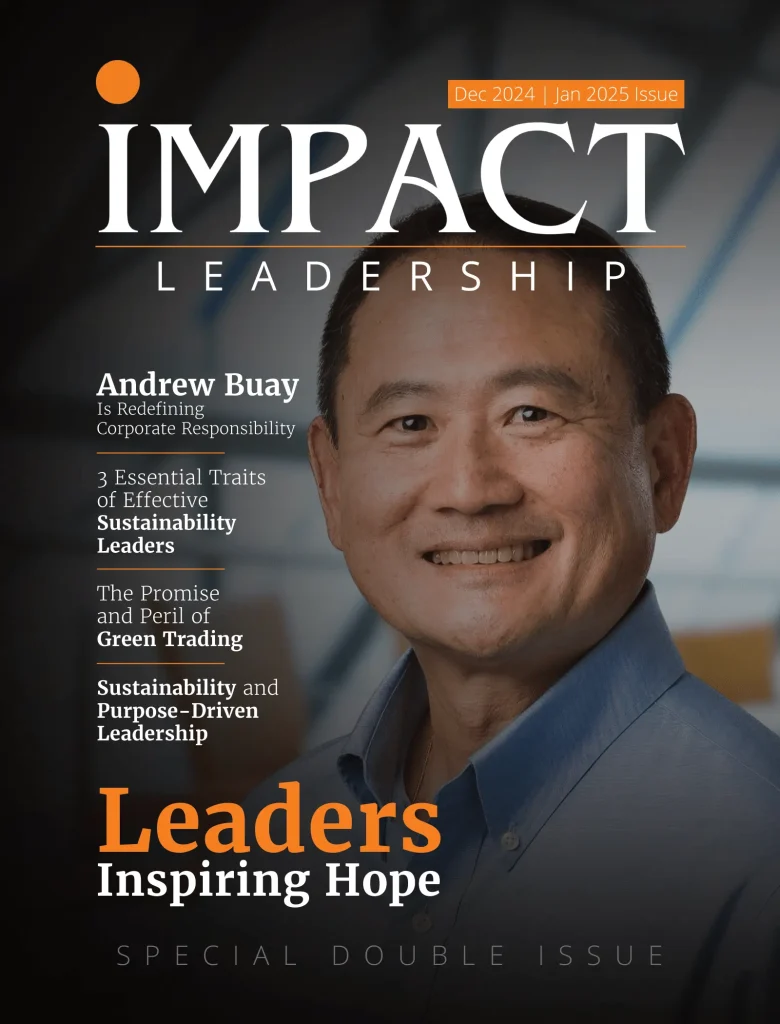Nick Chiarelli’s journey from a regular accountant to a leading voice in ocean innovation is proof that purpose and profit are not mutually exclusive. “It took me years to realize that financial returns, impact, and fun could coexist in a role,” he shares, as he describes his journey that would ultimately shape Ocean Impact Organisation (OIO). Co-founded with environmentalist Tim Silverwood, OIO is a vibrant platform designed to accelerate startups tackling ocean health and climate solutions – an arena once overlooked in mainstream climate discussions. Today, Nick’s work has helped position Australia as a leader in ocean innovation, driving investment, fostering cutting-edge solutions and inspiring a growing community of conscious entrepreneurs.
For Nick and Tim, the vision is bold yet clear – a future where sustainability drives profitability and where businesses act as custodians of the planet. Under their leadership, OIO has supported over 100 startups since 2020, steering funding toward innovations in food security, pollution, and biodiversity.
“Persistent storytelling has been critical,” Nick explains, as he shares how the ocean’s intrinsic power to inspire has been a cornerstone in shaping narratives. By weaving together financial opportunity and environmental stewardship, OIO is reimagining business as usual, proving that profit with purpose is both an ethical imperative and a competitive edge.
Can you share a bit about your background and journey thus far? What initially drew you to this field, and what are some of the highlights of your work so far?
Nick Chiarelli: I’m an accountant and an ex-listed company CFO. Before founding Ocean Impact Organization, I started feeling disillusioned with the concept of business as usual. I’ve always wanted to work in something I’m passionate about, but for much of my early career, I didn’t believe financial returns, impact, and fun could coexist in a role.
It took me years to realize that they actually can. The ocean has always been my passion. I grew up surfing, scuba diving, and free diving. When I realized there was a gap in what Ocean Impact Organization now does, there was a little voice in my head screaming that this was what I was meant to be doing.
“It took me years to realize that financial returns, impact, and fun could coexist in a role — but they absolutely can, and that changed everything for me.”
Over the past few years, we’ve supported more than 100 startups and entrepreneurs since 2020. Through our accelerator program, we’ve invested in 16 startups, working in areas like food security, ocean pollution, climate solutions, and biodiversity. Additionally, we’ve awarded around $400,000 in prize money and positioned ourselves as leaders in Australia’s ocean innovation ecosystem.
When we started, ocean solutions and startups weren’t part of the climate conversation. Globally, we’ve worked hard to change that, and now, the ocean is a key part of the climate narrative. Similarly, this year marked a turning point for integrating oceans into the biodiversity discussion. These developments are milestones for us because they open doors to new opportunities and investors.
You’ve described a belief in “conscious capitalism” and “profit with a purpose” as essential for achieving rapid change. How do you see this approach transforming industries and driving sustainability?
Nick Chiarelli: Conscious capitalism – or purpose-driven business – reflects a growing awareness among consumers and shareholders that companies should do more than just generate returns. We all share this planet and its resources, and the idea that businesses can use those resources without accountability is absurd.
Thankfully, we’re calling this out more often. Movements like B Corp certification, shareholder activism, and stricter climate disclosure requirements are all pushing for change. In our area, we’re seeing entrepreneurs tackling some of society’s most pressing challenges, which is very encouraging.
Ultimately, the idea that corporations should focus solely on shareholder returns is being challenged. While we’re still far from this being mainstream, I believe we’ll reach a tipping point where sustainability becomes a necessity for businesses to compete.

How can we encourage greater investment in ocean-focused and sustainability-driven businesses, and what role do you see financial institutions playing in this transition?
Nick Chiarelli: Five years ago, when I first approached people about investing in ocean health businesses, they thought I was asking for funds to clean beaches. We’ve come a long way since then. Persistent storytelling has been critical. The ocean itself is a powerful storytelling tool as it it evokes strong emotions and connections.
Initially, we focused on ocean lovers, using events and communications to show the power of technology and business in scaling conservation. It was challenging because business has traditionally been seen as the enemy by conservationists.
From an investment perspective, we’ve targeted impact-minded investors—those with affinities for oceans or adjacent sectors like climate tech. As the sector matures, we’re shifting towards mainstream investors to increase capital flow.
“Persistent storytelling has been critical. The ocean itself is a powerful tool — it evokes strong emotions and connections, shifting perspectives and inspiring action.”
The next few years will be crucial. We need to show successful exits for early investments in blue economy startups. Demonstrating tangible returns will attract more mainstream interest. Additionally, tools like the Ocean Impact Navigator help quantify impact, making it easier to communicate the value of these investments.
Financial institutions also play a vital role. Instruments like blue bonds and debt swaps are helping nations fund marine protected areas. To protect ocean health, science shows we need 30% of global oceans designated as marine protected areas.
As a leader who has navigated both startups and large organizations, what are the unique leadership qualities needed to drive impactful change in ocean conservation and sustainability?
Nick Chiarelli: Authenticity is key. Earlier in my career, I wasn’t mission-driven, and leading felt like hard work because it lacked authenticity. Now, being aligned with a higher purpose makes leadership easier and more meaningful.
Our team shares this mission-driven mindset. Everyone is here because they believe in the cause, which fosters a collaborative and motivated environment. Alongside authenticity, clear communication and openness are crucial. Providing context and clarity helps the team excel.
What challenges have you encountered in aligning financial goals with sustainability goals, and how do you overcome them to stay true to your mission?
Nick Chiarelli: When we started, ocean-focused businesses were not part of mainstream climate conversations. It was difficult to attract funding because the sector was in its infancy, and there wasn’t enough data or success stories to prove its viability.
We’ve overcome these challenges through persistent storytelling, building a supportive community of mission-aligned investors, and quantifying impact. Tools like the Ocean Impact Navigator have helped articulate the value of ocean innovation in measurable terms, enabling us to bridge the gap between financial and sustainability goals.
Moving forward, initiatives like nature markets will play a critical role in creating customers for innovations such as coral reef restoration. These markets will unlock significant opportunities for aligning financial and sustainability objectives.

Given these challenges, how can innovative financial mechanisms – such as nature markets – help overcome these obstacles and unlock funding for critical solutions like coral reef restoration and biodiversity preservation?
Nick Chiarelli: The ocean suffers from what’s referred to as the tragedy of the commons. Outside of our exclusive economic zones (EEZs) – where countries have jurisdiction – the ocean becomes a sort of “Wild West.” Without clear ownership or economic accountability, there’s limited motivation for individuals, corporations, or governments to care for these areas.
This is where nature markets offer real promise. By assigning value to biodiversity and motivating organizations to offset their environmental impact, we can finally create incentives for investment in critical areas, such as coral reef restoration.
For example, one of the startups we’ve invested in has developed a probiotic that helps corals build heat resistance, which is critical as ocean temperatures rise. Initially, they targeted hotel chains located near reefs – where guests would dive or swim – as a customer base. In these cases, the commercial incentive is clear: protecting the reef ensures a better experience for guests and, in turn, benefits the hotel’s bottom line.
However, there are vast coral reef ecosystems that don’t sit conveniently offshore from hotels or other commercial entities. Without clear market mechanisms or incentives, it’s difficult to identify customers who will pay for reef restoration efforts in these areas.
This is why nature markets are such an exciting development. They unlock opportunities for innovators and attract investor interest by providing a line of sight to customers and commercial returns. Investors are often drawn to startups with visible product-market fit, such as sustainable aquaculture, where the market and customers are clear. Nature markets will provide a similar pathway for habitat and biodiversity-focused ocean innovation, creating both ecological and economic incentives.
To me, this shift is not just about hope but also about opportunity. It means solutions that once seemed economically unviable are now gaining traction. As nature markets mature and grow, they will provide the financial mechanisms we need to drive impactful change at scale.
“Conscious capitalism reflects a growing awareness that businesses should do more than generate returns. We all share this planet, and accountability is no longer optional.”
As we reflect on the progress and challenges of this past year, what is one moment, achievement, or insight that gives you the most hope for a sustainable, net-zero, and nature-positive future?
Nick Chiarelli: There’s been tremendous progress in recent years. For instance, the ocean is now central to both climate and biodiversity conversations. Events like Australia’s Global Nature Positive Summit highlighted the ocean’s importance, and there’s growing recognition of solutions like nature markets, which can unlock funding for innovations like coral reef restoration.
These developments give me hope that we’re moving in the right direction. Seeing the ocean become part of key global conversations and the emergence of innovative solutions shows that meaningful change is possible.
Read this feature in the latest edition of Impact Leadership – a digital magazine inspiring a net zero and nature positive future. Access the magazine here.









